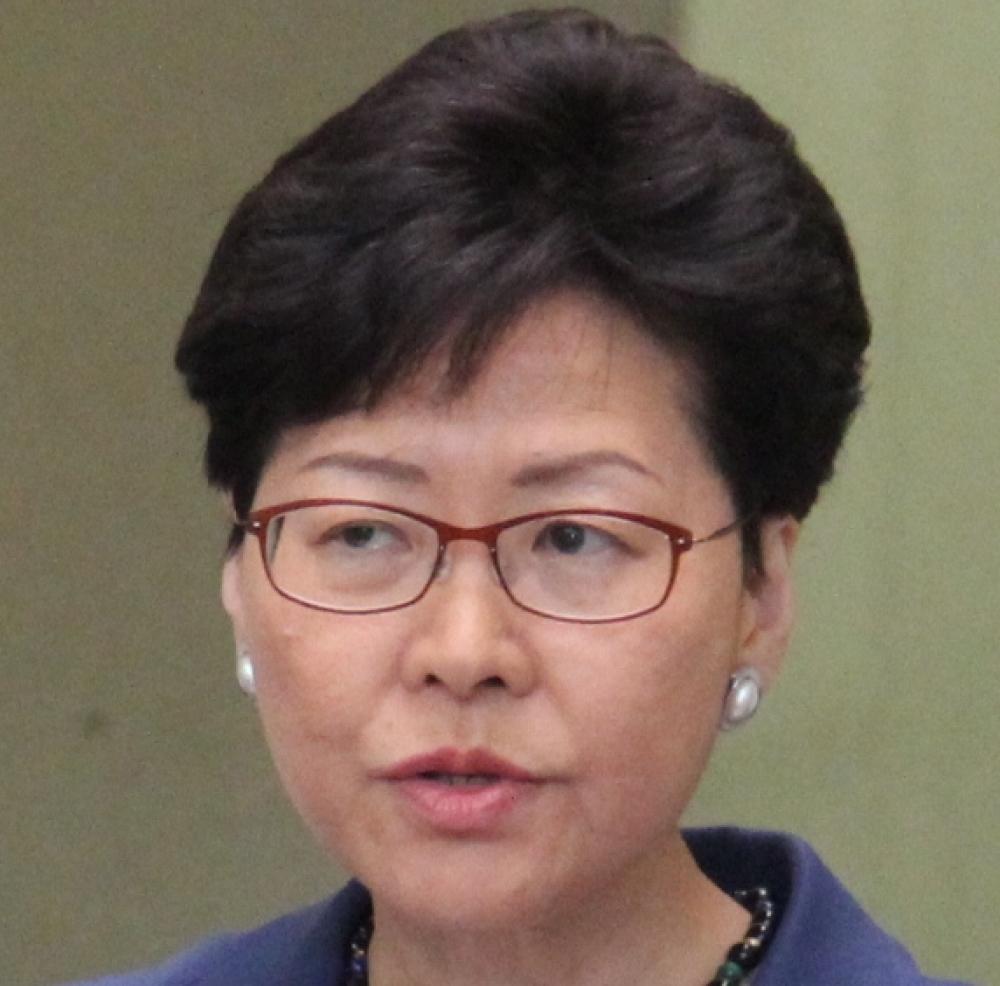Just Earth News | @justearthnews | 04 Sep 2019, 03:06 pm Print

Hong Kong City: Amid weeks of protests, Hong Kong leader Carrie Lam is all set to formally withdraw on Wednesday afternoon the much-despised extradition bill, media reports said.
Embattled Hong Kong leader Carrie Lam Cheng Yuet-ngor is set to formally withdraw on Wednesday afternoon the much-despised extradition bill that sparked the nearly three-month long protest crisis now roiling the city, sources have told the South China Morning Post.
A source also revealed to the newspaper that she will set up an investigative committee to look into the fundamental causes of the social unrest and suggest solutions for the way forward, stopping short of turning it into a full-fledged commission of inquiry, as demanded by protesters. Whether the committee will be independent is yet to be determined.
The decision to withdraw the bill will mean that the government is agreeing to accept one of the five demands of the protesters.
Protesters have been agitating against the bill for over 13 weeks.

Apart from the formal withdrawal of the legislation, the protesters have asked for the government to set up a commission of inquiry to investigate police conduct in tackling the protests, grant amnesty to those who have been arrested, stop characterising the protests as riots, and restart the city’s stalled political reform process, reported South China Morning Post.
Hong Kong has been witnessing protests since June over the controversial extradition bill.
The bill was earlier suspended.
The anti-government rallies are still taking place in the city for the past few weeks as they have now evolved into a broader pro-democracy movement demanding democratic reform and an investigation into alleged police brutality.
Protests have also taken place at the Hong Kong International Airport and other tourist spots in the city.
The protests are a big challenge to Chinese President Xi Jinping who assumed power seven years ago.
The protesters say they are fighting to preserve the “one country, two systems” arrangement and a promise of freedom under which Hong Kong was returned to China as a specially administered region by the British in 1997.
The bill would have allowed criminal suspects to be sent to mainland China for trial if it would have been passed.
Image: Wikimedia Commons and Unsplash
- Ali Khamenei (1939–2026): Iran’s Supreme Leader who ruled with an iron grip
- Trump signs 10% global tariff, says it takes effect ‘almost immediately’
- BJP wins a seat in Bangladesh — But not the one you think!
- Meet Shabana Mahmood: Could she take over as UK’s first Pakistani-origin Muslim PM?
- Dalai Lama's Office breaks silence on Epstein claims





-1763561110.jpg)
